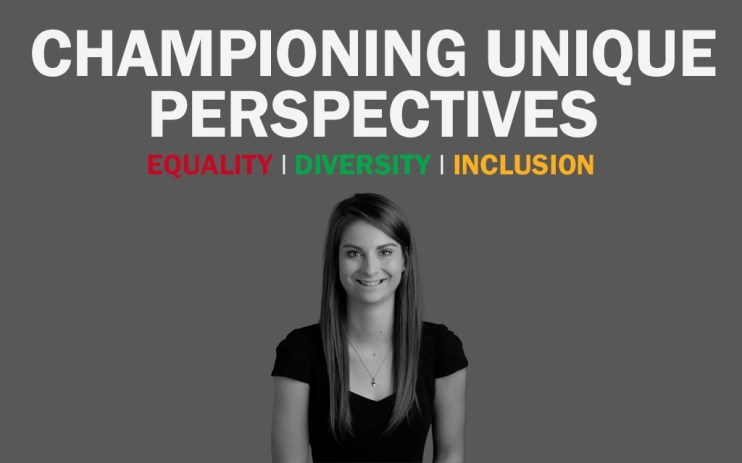
It’s time for business leaders to be educated about dyslexia

Emily Cheyne CA, Manager, Transaction Services at KPMG, discusses having dyslexia, comparing herself to others and how it’s time to stop thinking that one way of working is appropriate for everyone.
When were you diagnosed with dyslexia?
I was in Primary 5 at school – so 10 years old. The reason I was tested was because there were certain things that I was great at and then there were things I was just terrible at. I could understand the work, but I just couldn’t complete it in the same way as the other kids.
Can you describe how you felt when you found out?
It was such a long time ago, but I remember thinking ‘oh, now I know the reason why some things don’t click’, but it didn’t make it any easier as I was still trying to find ways of completing the work that worked for me. The main thing was trying to achieve understanding from people that I can do tasks, but in a different way than others.
What was your university and ICAS training experience like? Did you look for support for exams and, if so, how easy was it to find?
I had extra time for exams at school, university and during my CA training. I had been formally diagnosed as dyslexic and had an Educational Phycologist report that stated what additional support I needed. This meant adjustments were put in place for the exams.
The hardest thing for me were classes and lectures. I frequently felt as if I was falling behind despite spending almost double the time studying than a non-dyslexic would need to. Building in different ways of teaching to cater to people with dyslexia would be a great improvement.
What challenges have you faced because of your dyslexia?
Either being compared to other people or trying to do things the same as everyone else, for example trying to follow the CA advice on how to study for a particular exam, eventually realising that it didn’t work for me and that I had to develop my own plan that worked. The norm never really works for me and no two dyslexics are the same.
What are some of the positives to having dyslexia?
A couple of positives from being dyslexic are that I look at things in a totally different way and may see solutions that non-dyslexics may overlook. This can be really helpful when trying to solve something. I am also very organised and like working to a schedule.
Do you feel that today people are more likely to be open about their dyslexia in the workplace and why do you think that is?
I think people are starting to be more open but I do also think there is a long way to go. I think that companies are starting to realise that everyone is different, and everyone has different strengths. I think things are progressing because of ED&I initiatives and people feel more comfortable speaking about it. I also think workplaces should ask more questions and work to peoples’ strengths more instead of thinking that one way of working is appropriate for everyone.
Would you say that dyslexia has had an effect on your mental health?
I would say overall it has had a negative effect. The reasons for this are that I would compare myself to other people and wished I could do things the same as them.
Workplaces from my experience do not understand that people with dyslexia need to do things differently and have very different strengths.
I think as I have progressed through my career, I know what my strengths are and how to use them. I am also more open about being dyslexic and speaking up when I know I need to do something in a different way.
In your opinion, how can employers make sure that their workplace is open and accessible to people with dyslexia and similar neurodiversities?
Employers need to ask more questions and be more approachable with ideas about what can be put in place and adjustments made.
They also need to be more proactive in improving the visibility of support they can offer to people with dyslexia, rather than putting the onus on the employee to find out for themselves.
When people are just starting their career, they may not feel comfortable asking for ‘something different’. You just want to get on with the work and be the same as your colleagues.
I also think there should be more education in the workplace about dyslexia. Giving leaders the tools to know what to look for and giving them recommendations on how to best work with employees with dyslexia would be a step forward.
Not everyone can do the same job and employers should work to their employee’s strengths, which would result in a more motivated, efficient workforce. Managers/leaders should have better training to detect, understand and develop a new strategy.
Emily’s story is part of ICAS’s Championing Unique Perspective campaign which profiles its diverse membership and aims to build awareness and possible solutions on the key themes of equality, diversity and inclusion (ED&I), integrating them into working practices. Visit the ICAS website to read more stories like Emily’s.